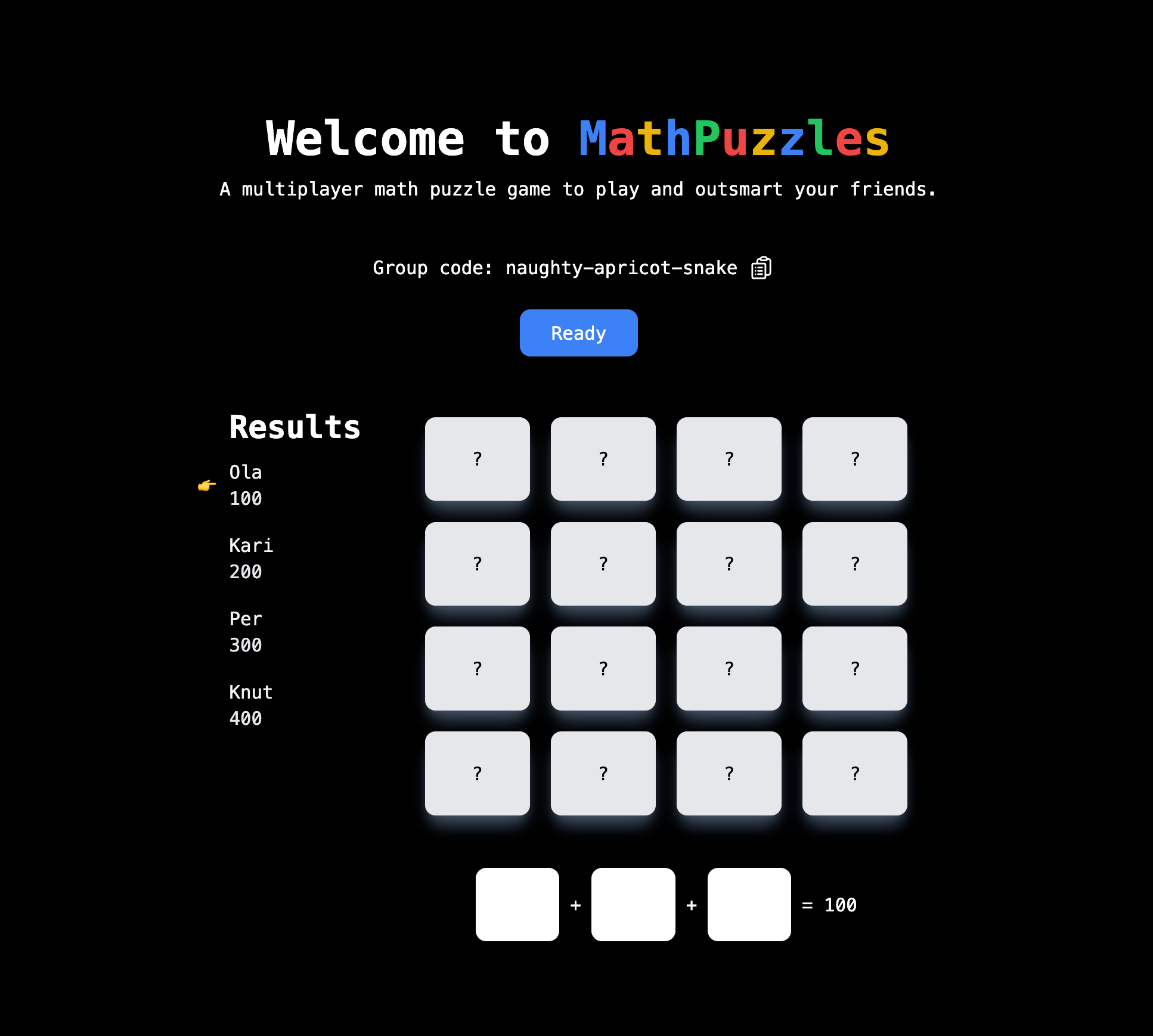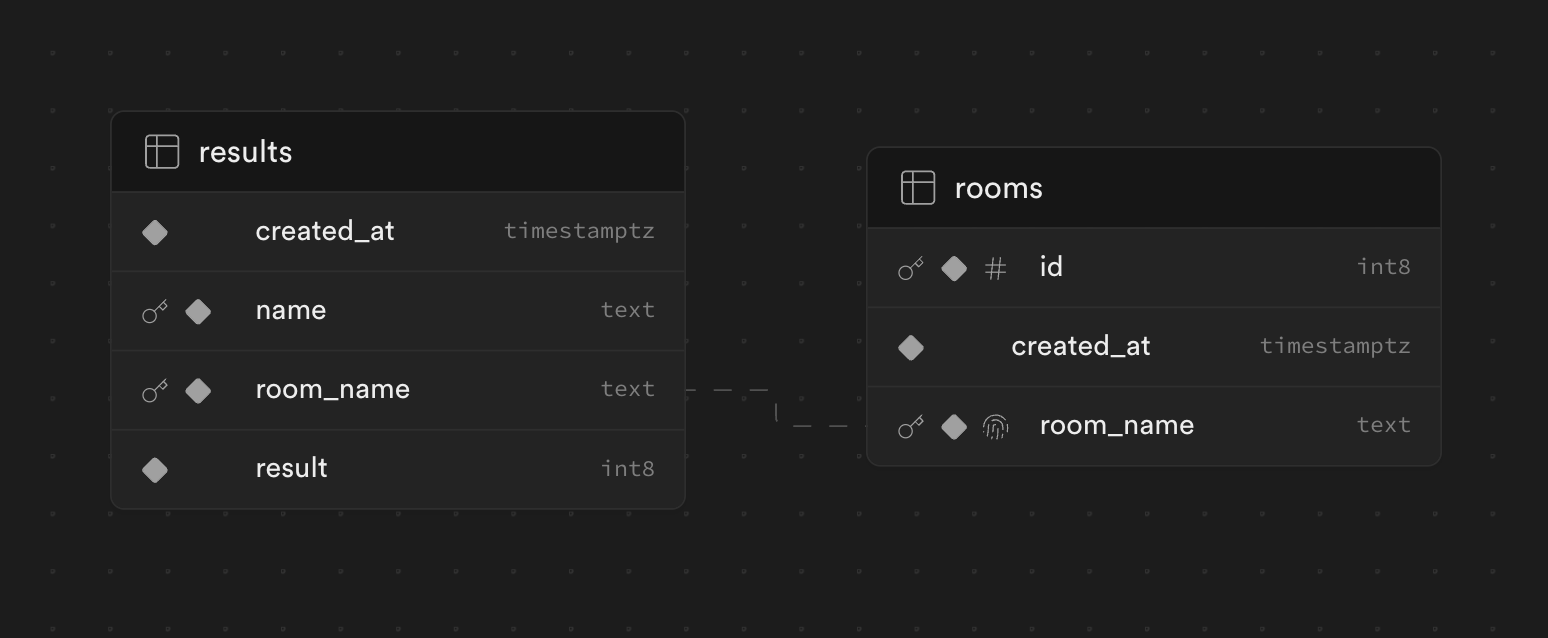Exploring Supabase Realtime By Building a Game
6 min read ·
I just started a new project to explore the real-time features of Supabase. My goal was to see how it works in a real application and play a bit with what Supabase offers. After jumping from one idea to another, I finally settled on creating a multiplayer math puzzle game. The idea is that players use numbered cards to match a target sum in input fields. You can play with your friends and see who’s the fastest at math (I also just learned that I’m VERY slow 🫠).

I won’t discuss all the details of the game’s development in this post. Instead, I’ll focus on how I used Supabase’s real-time features. I’ll explain where these features are most effective in the game, allowing players to interact seamlessly and instantly.
If you want to jump straight to the code, you can check out the project’s GitHub repo.
Tech Stack
- Supabase (obviously).
- Next.js: I initially considered using Vite, but it’s been a while since I built an app in Next.js, and I always liked its DX.
- Tailwind: Because nothing else compares in terms of CSS development speed for me ❤️🔥
- TypeScript (do I even need to mention that???)
- OpenAI: Technically, I haven’t used it yet, but there was an idea to generate math puzzles with AI (PR coming!).
Setup
To start the Next.js app, I used create-next-app and followed the
instructions. I chose App Router, TypeScript, Tailwind, and other recommended
options. It’s nice that the new app initializer includes Tailwind from the
beginning. Even though setting up Tailwind is not a lengthy process, having it
pre-configured reduces manual setup and improves the framework experience.
New Supabase Project Setup
I have created a new Supabase project and added two tables. If you want to learn more about creating projects, you can refer to the documentation.
Here is my database schema:

After setting up the database, I needed to do two things:
- Disable RLS (Row Level Security) - My application won’t have authentication, so I deliberately want to allow unauthenticated access to the database.
- Enable realtime functionality.

Client Setup + TypeScript Support
I have added the @supabase/supabase-js package to my project and used the
createClient function to set up a Supabase client.
Since I value good TypeScript support, when working with Supabase, I typically add a new script that generates types based on my database schema.
jsx
jsx
The generated database.types.ts file exports a Database type that needs to
be passed as a generic parameter to the createClient function:
ts
ts
Game
Ok, let’s discuss the game and its user interface!
The index page offers two options: creating a new game or joining an existing
game using a room code. I use the rooms table to track all open rooms and the
results table to manage and synchronize the results. When you enter a room (by
either creating a new one or joining an existing one), you’ll see a leaderboard
on the left and a game board on the right. The online players are displayed as
well. Once all your friends have joined, you can click “Ready”, and the game
begins when everyone is ready.
The main concept is to have 16 cards (originally, I wanted 25, but I struggled to work with that many, so I reduced it to 16 and may even decrease it to 9). You also have a specific number of inputs (2-4) and a target number that you need to “get” from the cards. If you guess correctly, you receive new numbers. Each correct guess earns you 100 points (1 seemed too dull as a score). The game continues until you run out of time. Simple, right? Well, the idea is, but not necessarily, the game itself.
Tracking Users Presence
The first use case for Supabase is tracking player presence. We need an up-to-date list of all the people currently in the room.
I have a local user state that I sync every time there’s a change, either when a user leaves or joins a room.
To do this, I create a new channel using supabaseClient.channel(roomName) and
then listen for the events:
REALTIME_PRESENCE_LISTEN_EVENTS.SYNC,REALTIME_PRESENCE_LISTEN_EVENTS.JOIN,REALTIME_PRESENCE_LISTEN_EVENTS.LEFT.
ts
ts
Sending Messages
The next step is to keep track of whether users are ready. To do this, I must “inform” all clients whenever a specific player clicks “Ready”. This is where Supabase’s real-time feature, broadcasting, comes in.
I can send a message to the room, passing any payload I need and providing an event type. In this case, I called the event “ready”.
tsx
tsx
I also need to listen to the “ready” event. Here’s how to do it:
ts
ts
Listening To Result Changes
Now, let’s consider how to display live results. One way to achieve this is by
using broadcasting again, where you send a result-update event with a
{username, result} payload. However, storing the results in a database may be
beneficial so that they persist even if the page is refreshed. Note that as of
writing this post, refreshing the page is not recommended since no database
syncing is implemented yet, and doing so will mess up the game 🥲.
Whenever the user guesses correctly, I update the information in the Supabase database:
ts
ts
I also listen to the UPDATE events for the results table to sync the local
user’s state:
ts
ts
You can also pass custom filters. In this case, I only care about the updates related to the particular room:
ts
ts
Future Enhancements
- Open game room: Add a ‘general’ room for everyone, resetting it every day
using
pg_cron. - AI for creating puzzles: Use AI to come up with new math puzzles.
- Levels of difficulty: Introduce different levels for players with a different amount of cards.
- Saving game progress: Make sure the game saves progress, so if you refresh the page, it doesn’t mess everything up.
- Play again option: Add a button to start a new game easily.
- Time settings for games: Let players set a game duration time when they create a game.
Summary
Working with Supabase real-time features: 🧘
Solving those math puzzles: 🫠
Integrating real-time features using Supabase’s API was a smooth and enjoyable experience. For those interested, I recommend checking out their documentation for more information. Also, you can explore the project’s GitHub repo and the game’s repository for a closer look.
Also, a special shoutout to Joshua Goldberg for
creating the emojisplosion
package. I did not expect to find this gem when I googled “npm emoji explosion”
🤯
P.S. I may or may not finish building this game.